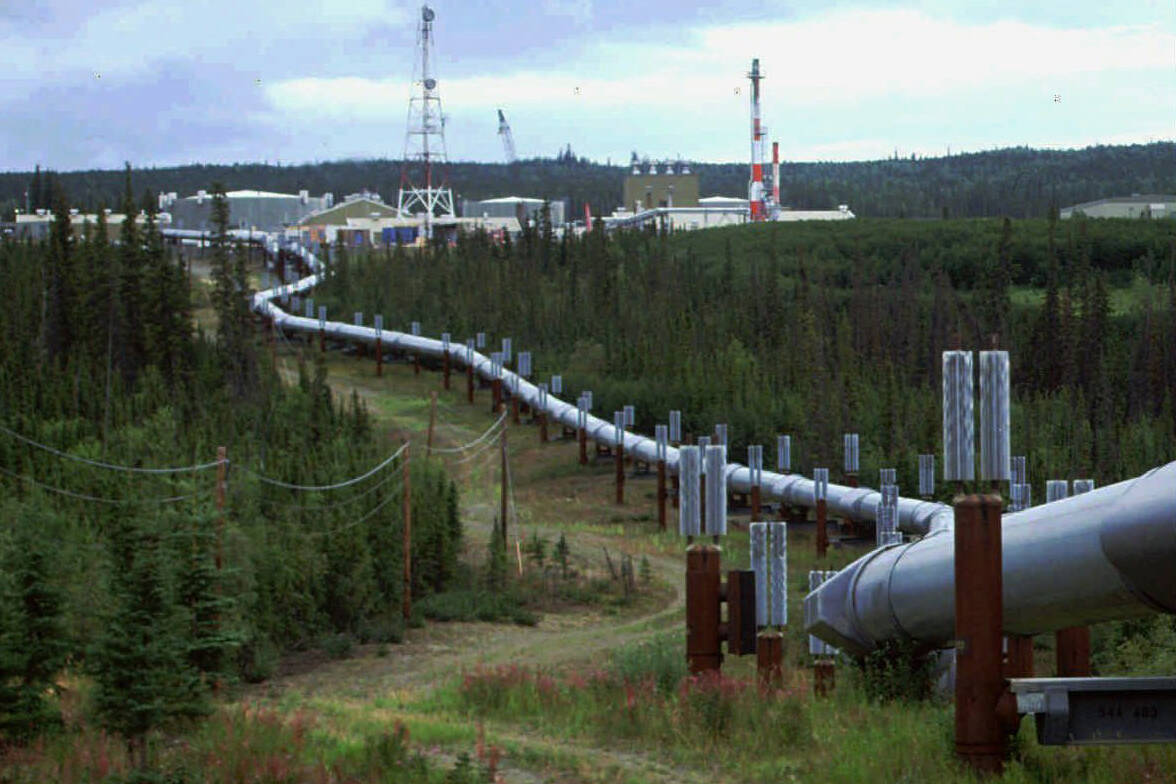North Slope oil prices are expected to run well below spring predictions, endangering a bonus year of K-12 school funding approved by Gov. Mike Dunleavy and state legislators.
The change to the state’s outlook was made public in a notice published Monday by the Alaska Department of Revenue. The notice was part of a department procedure that calls for a forecast update if prices vary by more than 10% from what was expected.
In March, Revenue officials said they expected prices to average $101 per barrel between July 1, 2022, and June 30, 2023, the period known as Fiscal Year 2023.
Through the first two and a half months of the fiscal year, that forecast was accurate: The price of a barrel of North Slope Crude averaged $103.09 between July 1 and Sept. 15.
But on Monday, Revenue officials — relying on global futures markets that trade in oil from Europe’s North Sea — said they expect the average annual price to drop to $91.96 per barrel by the end of the fiscal year.
“While this update does not incorporate the level of rigor and detail that we put into the official spring and fall revenue forecasts, it does give an indication of how revenues are expected to perform based on the most currently available information,” the new estimate said.
If the forecast holds true, it would not significantly affect state services, but it would erase most of $1.2 billion in bonus funding for K-12 public schools.
This spring, state lawmakers earmarked $1.2 billion for public schools in the 2022-2023 school year. Because oil prices were expected to be high, they set aside another $1.2 billion in bonus funding — an advance payment for the 2023-2024 school year — calling it a way to save for the future.
That bonus funding comes with a financial trigger — if oil prices fall, the amount is automatically reduced to an amount the state can afford. At $89 per barrel, the bonus funding would be entirely eliminated. If oil falls below $89 per barrel, the state would have to spend from savings to balance the budget.
• James Brooks is a longtime Alaska reporter, having previously worked at the Anchorage Daily News, Juneau Empire, Kodiak Mirror and Fairbanks Daily News-Miner. This article originally appeared online at alaskabeacon.com. Alaska Beacon, an affiliate of States Newsroom, is an independent, nonpartisan news organization focused on connecting Alaskans to their state government.

